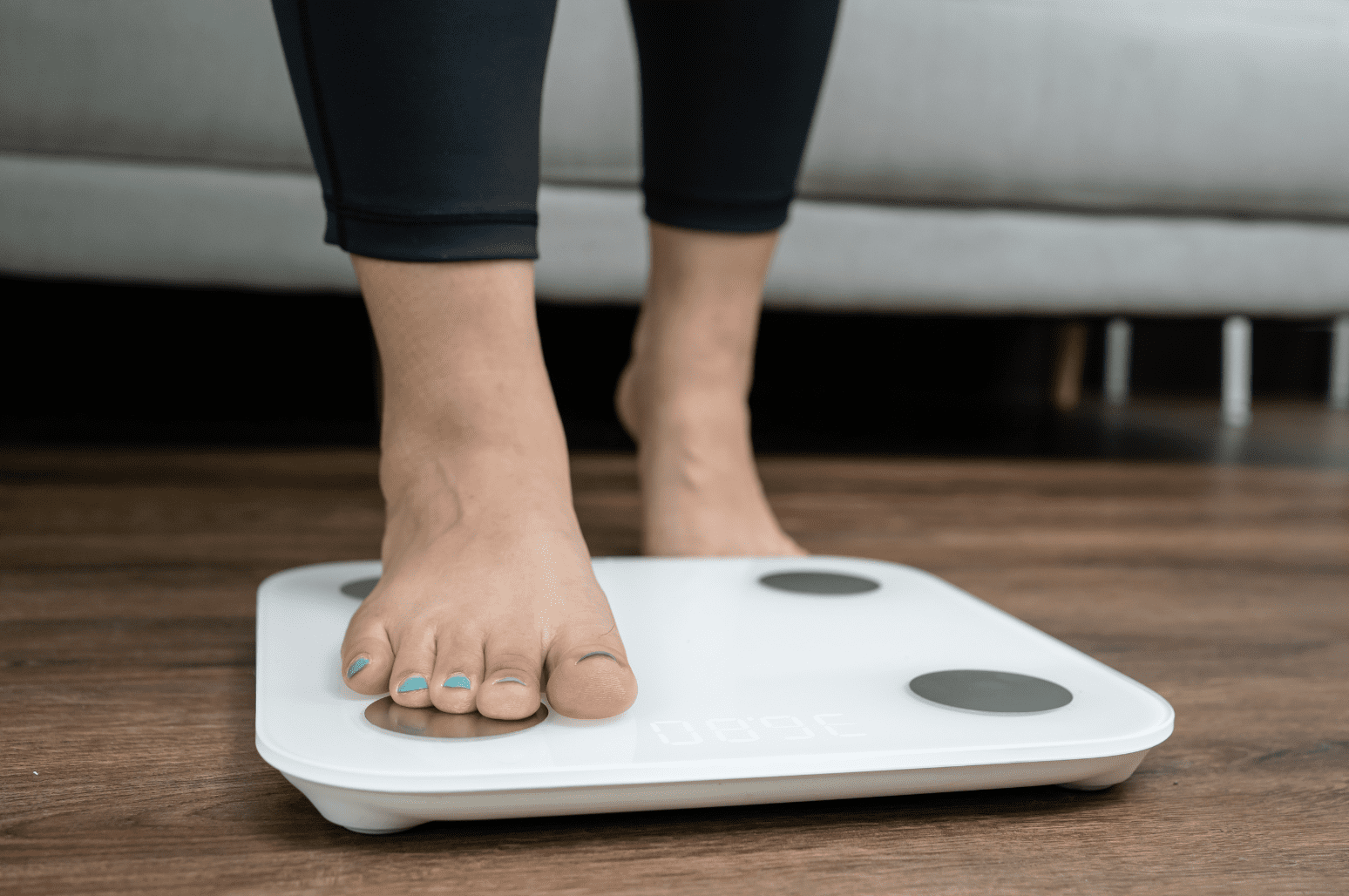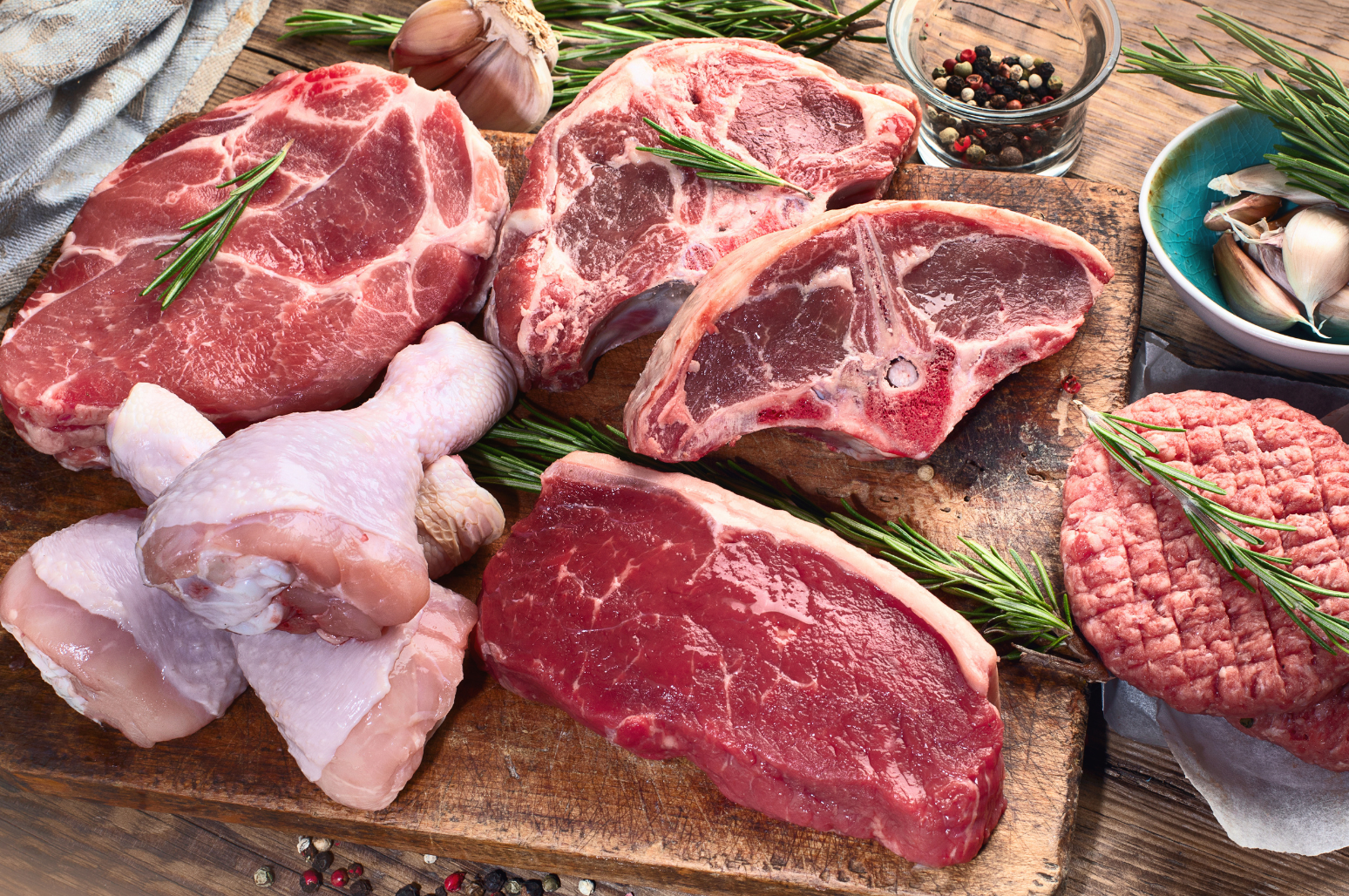
Most people agree protein is important, and you don’t want to run into a deficiency. During the digestive process, your body breaks down protein foods into amino acids. Good sources of protein and amino acids are found in animal sources like meat, fish, milk, and eggs, as well as plant sources, such as beans and legumes, soy, nut butter, and grains.
Most people consume around 15% of their daily calories from protein, which prevents deficiency. Some people benefit from eating as much as 25-30% of their calories from protein. Protein is a key player when it comes to losing weight, gaining muscle mass and strength, and improving metabolic health.
A higher protein intake can be beneficial, but it isn’t for everyone. It’s always best to visit your doctor or healthcare practitioner if you have any questions or concerns about protein or your diet and before you make any dietary changes. [1] [2]
Protein isn’t just beneficial; it’s essential. Let’s discuss the top five benefits of eating more protein.
Muscle Mass and Strength
Getting enough protein is important for everyone, not just athletes and those who are physically active, trying to gain muscle, and lifting weights.
Protein is considered the building block of your muscles, so eating more protein promotes muscle growth. Studies reveal consuming plenty of protein increases muscle strength and mass, and maintaining a high protein intake helps prevent muscle loss during weight loss. [3] [4]

Bone Health
It’s a myth that protein is bad for your bones. Some people perpetuate the idea that protein, particularly animal protein, increases the acidity load in the body and causes calcium to leach from your bones to neutralize the acid and maintain the right ph.
However, long-term studies show that protein, including natural animal protein, is advantageous for wellness and bone health. [5] [6]
Taking care of bone health is also crucial for women who are at a higher risk of osteoporosis, especially after menopause. Osteoporosis is a condition involving weakened bones that are more susceptible to fracture. Eating sufficient protein and staying active helps prevent osteoporosis and bone deterioration.
People who consume more protein have a lower risk of fractures and osteoporosis and seem to maintain bone mass better with aging. [7] [8]
Eating High Protein Foods for Injury Repair
Most of the cells in your body regenerate, and with the right nutrition, you can regenerate rather than degenerate. Protein is the main building block of organs and tissues, and it helps your body repair following an injury.
Studies highlight that consuming more protein after an injury accelerates recovery time. [9]

Lowers Blood Pressure
High blood pressure is a risk factor for heart disease, stroke, chronic kidney disease, and more. Higher protein intake has been associated with lower blood pressure. For example, a review of 40 controlled trials concluded increased protein lowered systolic blood pressure by 1.76 mm Hg on average and diastolic blood pressure by 1.15 mm Hg. [10]
Another study found that as well as reducing blood pressure, high-protein intake also improved cholesterol markers and reduced triglycerides and LDL ‘bad’ cholesterol. [11]
Boosts Metabolism
Eating food temporarily boosts your metabolism. Your body uses calories to digest and use the nutrients in the foods you eat, and this process is referred to as the thermic effect of food (TEF). Some foods have different thermic effects compared to others. Protein has a higher thermic effect than fat or carbs with 20-35% compared to 5-15%. [12]
High protein intake can drastically boost metabolism and increase calorie burning to the tune of 80-100 more calories burned daily! [13] [14]
One impressive study showed the high-protein group burned 260 more calories daily compared to the low-protein group, which is equivalent to about an hour of moderate-intensity exercise each day. [15]
References
Westerterp-Plantenga, M. S. (2008). Protein intake and energy balance. Regul Pept, DOI: 10.1016/j.regpep.2007.08.026
Noakes, M., Keogh, J. B., Foster, P. R., & Clifton, P. M. (2005). Effect of an energy-restricted, high-protein, low-fat diet relative to a conventional high-carbohydrate, low-fat diet on weight loss, body composition, nutritional status, and markers of cardiovascular health in obese women. American Journal of Clinical Nutrition, 81(6), 1298-306. DOI: 10.1093/ajcn/81.6.1298
Bosse, J. D., & Dixon, B. M. (2012). Dietary protein to maximize resistance training: A review and examination of protein spread and change theories. J Int Soc Sports Nutr, DOI: 10.1186/1550-2783-9-42
Pasiakos, S. M., McLellan, T. M., & Lieberman, H. R. (2015). The effects of protein supplements on muscle mass, strength, and aerobic and anaerobic power in healthy adults: A systematic review. Sports Med, 45(1), 111-31. DOI: 10.1007/s40279-014-0242-2
Bonjour, J-P. (2005). Dietary protein: An essential nutrient for bone health. J Am Coll Nutr, DOI: 10.1080/07315724.2005.10719501
Kerstetter, J. E., Kenny, A. M., & Insogna, K. L. (2011). Dietary protein and skeletal health: A review of recent human research. Curr Opin Lipidol, 22(1), 16-20. DOI: 10.1097/MOL.0b013e3283419441
Hannan, M. T., Tucker, K. L., Dawson-Hughes, B., Cupples, A., Felson, D. T., & Kiel, D. P. (2009). Effect of dietary protein on bone loss in elderly men and women: The Framingham Osteoporosis Study. Journal of Bone and Mineral Research, https://doi.org/10.1359/jbmr.2000.15.12.2504
Munger, R. G., Cerhan, J. R., & Chiu, B. C. (1999). Prospective study of dietary protein intake and risk of hip fracture in postmenopausal women. American Journal of Clinical Nutrition, 69(1), 147-52. DOI: 10.1093/ajcn/69.1.147
Frankenfield, D. (2006). Energy expenditure and protein requirements after traumatic injury. Nutr Clin Pract, DOI: 10.1177/0115426506021005430
Kuil, W., Engberink, M. F., Brink, E. J., Van Baak, M. A., Bakker, S. J. L., Navis, G., Veer, P., & Geleijnse, J. M. (2010). Dietary protein and blood pressure: A systematic review. PLoS One, DOI: 10.1371/journal.pone.0012102
Appel, L. J., Sacks, F. M., Carey, V. J., Obarzanek, E., Swain, J., Miller, E. R…Bishop, L. M. (2005). Effects of protein, monounsaturated fat, and carbohydrate intake on blood pressure and serum lipids: Results of the OmniHeart randomized trial. JAMA, DOI:10.1001/jama.294.19.2455
Halton, T. L., & Hu, F. B. (2004). The effects of high protein diets on thermogenesis, satiety, and weight loss: A critical review. Journal of the American College of Nutrition, 23(5), 373-85. DOI: 10.1080/07315724.2004.10719381
Johnston, C. S., Day, C. S., & Swan, P. D. (2002). Postprandial thermogenesis is increased 100% on a high-protein, low-fat diet versus a high-carbohydrate, low-fat diet in healthy, young women. Journal of the American College of Nutrition, 21(1), 55-61. DOI: 10.1080/07315724.2002.10719194
Veldhorst, M. A. B., Westerterp-Plantenga, M. S., & Westerterp, K. R. (2009). Gluconeogenesis and energy expenditure after a high-protein, carbohydrate-free diet. American Journal of Clinical Nutrition, 90(3), 519-26. DOI: 10.3945/ajcn.2009.27834
Bray, G. A., Redman, L. M., De Jonge, L., Covington, J., Rood, J., Brock, C., Mancuso, S., Martin, C. K., & Smith, S. R. (2015). Effect of protein overfeeding on energy expenditure measured in a metabolic chamber. American Journal of Clinical Nutrition, 101(3), 496-505. DOI: 10.3945/ajcn.114.091769









